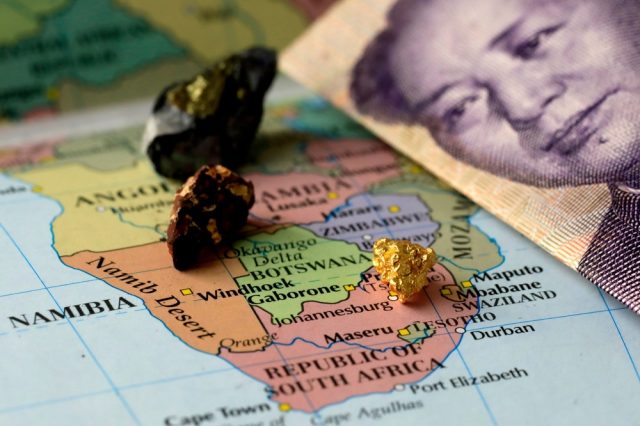
A shared future? The goals of the China-Africa Summit.
The Forum on China-Africa Cooperation (FOCAC), also known as the Forum sur la coopération sino-africaine, took place from September 4 to 6. The main objective of the forum was to facilitate and encourage Chinese investments in Africa, focusing on critical areas such as infrastructure, energy, and technology.
The Chinese government has been actively allocating funds for the development of infrastructure in Africa, particularly focusing on roads, railways, and ports. This investment has been ongoing for quite some time and has been a significant area of collaboration between China and various African nations. However, during a recent summit involving African leaders, there was a strong emphasis on ensuring the long-term sustainability of these infrastructure investments and their positive impact on local economies. African leaders expressed a keen interest in ensuring that these developments are not only economically beneficial but also environmentally and culturally sensitive. They highlighted the need for these projects to take into account the unique ecological systems and traditions of local communities. The leaders are concerned about the potential for conflicts between economic development and ecological preservation, and they are actively focused on finding solutions to mitigate these risks and ensure that the development projects are in harmony with the local environment and culture.
 Africa’s economic advancement is closely tied to the adoption of new technologies. China has provided assistance in the form of technology transfer and training to bolster local capabilities. Despite these efforts, the issue of food security persists. African leaders have emphasized the importance of building robust agricultural systems capable of addressing the impacts of climate change and population growth.
Africa’s economic advancement is closely tied to the adoption of new technologies. China has provided assistance in the form of technology transfer and training to bolster local capabilities. Despite these efforts, the issue of food security persists. African leaders have emphasized the importance of building robust agricultural systems capable of addressing the impacts of climate change and population growth.
The recent influx of Chinese investments in Africa has sparked considerable debate. While these investments promise numerous benefits for African governments, concerns have also been raised about the potential for a new form of colonialism with Beijing at its helm. It is crucial for African nations to maintain sovereignty over their decision-making processes and to ensure that any agreements with China are equitable and mutually advantageous. Over the next three years, China has pledged to allocate more than $50 billion to fund various modernization projects across the African continent. This commitment underscores China’s ambition to bolster its influence in the region through direct investments.
China considers Africa to be of great significance due to its substantial representation in the United Nations. African votes are strategically important for Beijing as it pursues its foreign policy objectives. Additionally, China aims to strengthen its position as a leader of the Global South by advocating for governance that meets the requirements of developing nations.
China is emerging also as a prominent global leader in the exportation of renewable energy technologies, particularly in the realms of solar and wind energy. These technologies are pivotal in providing clean energy to rural areas in Africa, thereby reducing reliance on fossil fuels and expanding access to electricity for the 600 million Africans currently without it.
However, Chinese investments have also been associated with adverse environmental effects, including illegal imports of timber and ivory, as well as environmental damage resulting from certain projects. There is a palpable concern that China may extend its resource-driven development model to Africa, potentially leading to environmental degradation. During COP27, Africa advocated for increased funding to address the impacts of climate change, despite contributing relatively little to these effects. In essence, China’s influence on Africa’s energy and environmental paths is substantial, encompassing both beneficial and detrimental aspects.
The partnership between African countries and China is of great importance. It is crucial for African nations to maintain control over their policies in order to maximize the benefits and minimize the risks of this evolving partnership. The recent Africa-China summit marked a significant step towards deeper cooperation between the two regions.
With a focus on sustainable development, technological innovation, and food security, there are significant opportunities to improve economic conditions in Africa. However, it is imperative that African states remain vigilant and ensure that the benefits of Chinese investment are distributed equitably among their populations. This meeting not only underscored the potential of the Sino-African partnership but also raised critical questions about the future of international relations in the context of globalization.



 Subscribe
Subscribe